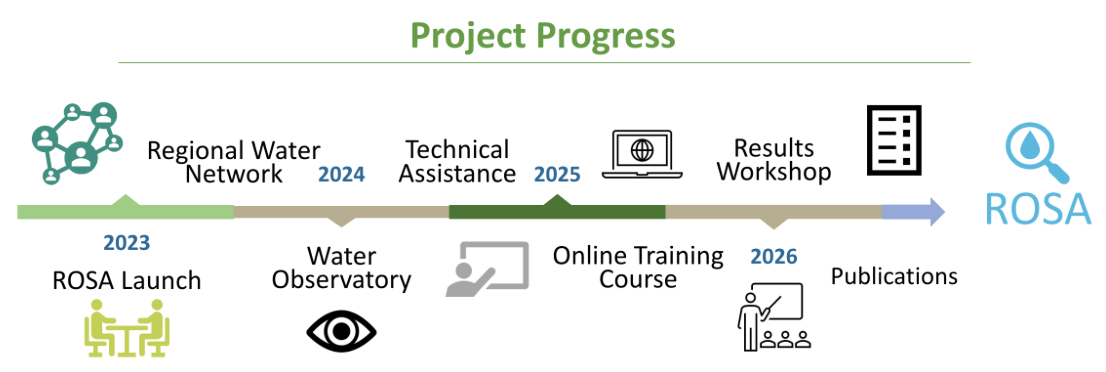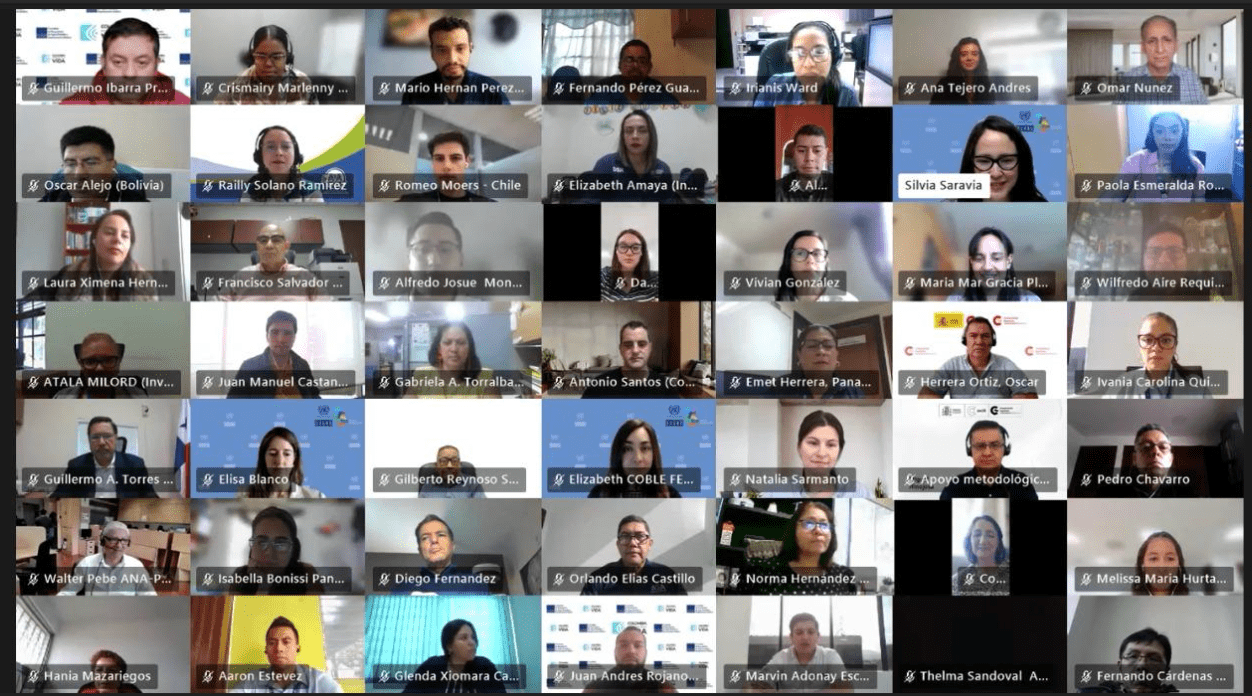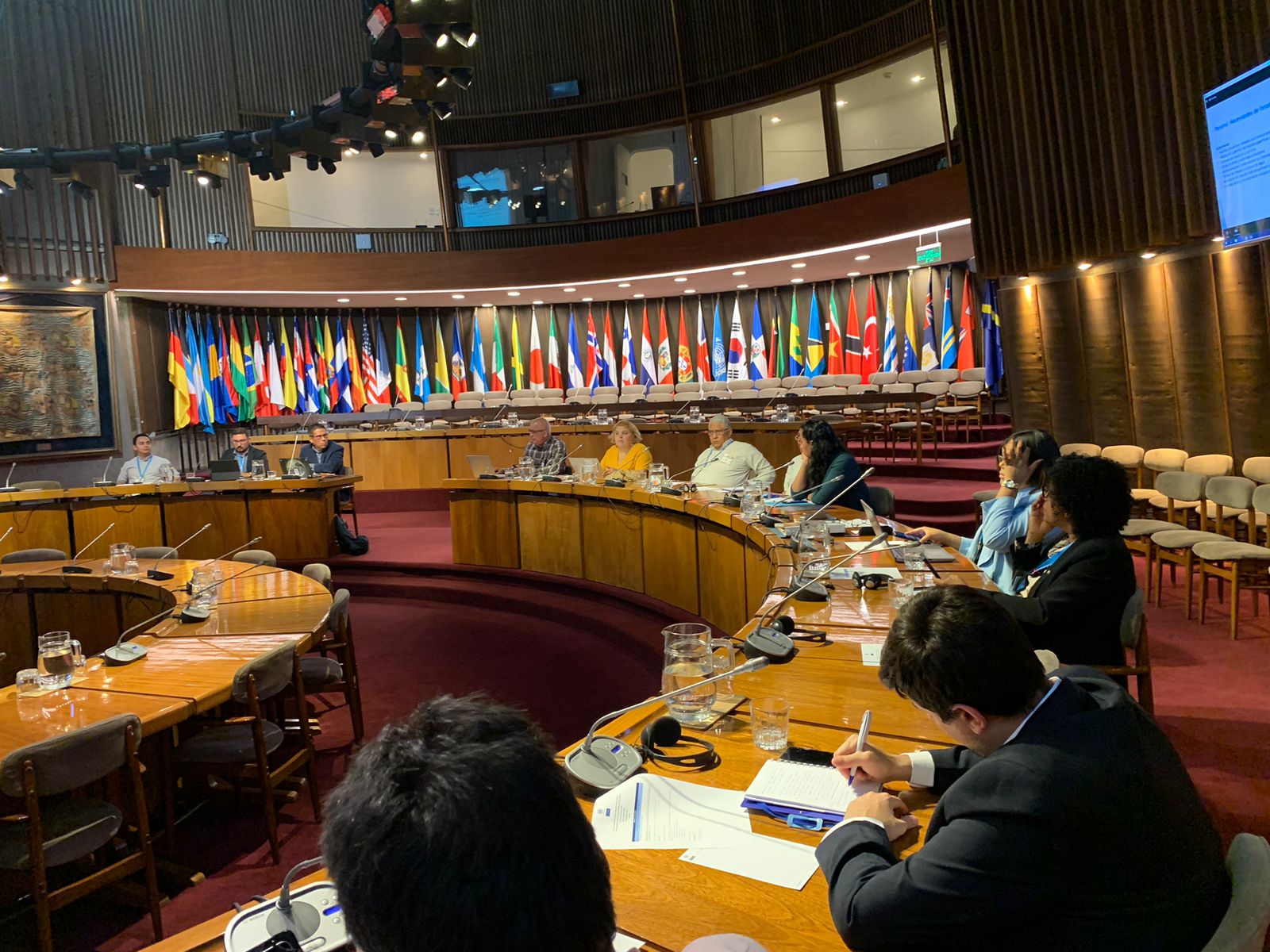Progress of the ROSA Project: Network and Observatory for Water Sustainability - Year 1: February 2023 - March 2024
Work area(s)
The water and sanitation crisis requires a holistic, systemic and multilateral response to accelerate the achievement of SDG 6. In the region there is a lack of available data on the governance, management or environmental aspects of water, the data that exists on Drinking water and sanitation are dispersed among national institutions and countries' capacities to report on different sustainable water management indicators. To accelerate compliance with SDG 6, Latin America and the Caribbean (LAC) countries need to promote policies and incentives based on timely, reliable and standardized information, which requires strengthening their capacities in a changing environment. This is the central objective of the Regional Network and Observatory for Water Sustainability (ROSA) in LAC, which continues to advance with a very successful and enlightening year.

The First Meeting of the ROSA Project was held at the ECLAC headquarters with the participation of ministers and authorities of the water and sanitation sector from Colombia, Bolivia, El Salvador, Panama and the Dominican Republic to present the objectives of the project and identify the priorities and specific capacity development needs of the target countries. A few days later the Third Edition of the 2023 Regional Water Dialogues took place, which was attended by 200 in-person participants representing more than 20 countries in the region, of which 80 were high-level panelists. There, the ROSA Project was officially launched, which is being carried out between 2023 and 2026, with the aim of creating new alliances and strengthening institutional and technical capacities to implement a sustainable and inclusive transition in water management in a context of climate and budget constraints for the region.
The launch of the project was highlighted in the Regional Water Action Agenda, a document that represents the main result of the 2023 Regional Water Dialogues and an important regional contribution to the 2023 World Water Conference in New York by carrying the voice of the member countries of ECLAC to such a global event that brought together more than 10,000 participants from 170 countries.
It is at the 2023 World Water Conference where the parallel event was held: Network and Observatory for Water Sustainability (ROSA): Promoting the Regional Agenda for Water Action in LAC, organized jointly between the Ministry of Housing, City and Territory of Colombia and ECLAC. After the opening by the Minister of Colombia and the Director of the Natural Resources Division of ECLAC, followed by a brief presentation of the Rosa Project, a ministerial round table took place, where each panelist commented on the main challenge of water. . of their country, as well as the actions they are taking to confront it in the short, medium and long term. The event concluded with the ratification of the founding countries' commitment to the project and the Regional Action Agenda for Water.
In September, the first ROSA Online Seminar took place: Sectoral Policy and Planning of Sanitation and Wastewater Treatment in LAC, which was carried out in synergy with the Conference of Ibero-American Water Directors (CODIA), the Cooperation Fund for Water and Sanitation (FCAS) and the Center for Study and Experimentation of Public Works of Spain (CEDEX). The event had the participation of more than 114 connected people and all the focal points of the countries of the ROSA project network. The dynamics and diagnosis of the progress of goals 6.1 and 6.2 of Latin America and the Caribbean were introduced, the institutional framework in sanitation in the Latin American and Caribbean area was presented, the typical service delivery models, the charging for services (rates and subsidies) and the types of systems in the region. The session closed with comments on national experiences regarding opportunities and challenges, along with recommendations for public policy practices in the sanitation sector in Latin America and the Caribbean.
The same month, the first Field Technical Assistance: Circular Economy in the Drinking Water and Sanitation Sector was developed in El Salvador. The training sessions addressed critical topics such as urban water management in LAC, the circular economy approach in the sector, and nutrient recovery and methane capture in wastewater treatment systems. Practical workshops were then held in which ECLAC experts and the participants worked together. Finally, the Ciudad Futura, San Juan de Opico and Metapán WWTPs were presented with the objective of highlighting opportunities and challenges associated with the implementation of circular practices in wastewater treatment, followed by a technical visit to the Ciudad Futura WWTP in Cuscatancingo.
In December, two virtual technical assistance sessions were carried out in El Salvador. The first: Towards a circular economy policy in drinking water and sanitation, had as its main objectives to present circular economy principles applicable to public policy in drinking water and sanitation and to support the design of a national circular water policy. The open space for discussion and exchange of knowledge, questions and doubts among the participants of the Salvadoran Water Authority ASA was highlighted by the President of ASA, Engineer Jorge Castaneda, as a good basis to advance in the design of the circular economy policy in the country. The second attendance: Recommendations to the National Policy for Integrated Water Resources Management of El Salvador, was a closed session where experts invited by ECLAC from the Tulane Water Institute and the Polytechnic University of Madrid, as well as the water technical team of ECLAC, offered suggestions and recommendations for the new Water Resources Policy Proposal of El Salvador, led by the Salvadoran Water Authority (ASA).
2024 began with the First Virtual Technical Assistance within the Framework of the ROSA Project for the Plurinational State of Bolivia, which took place on February 15. In this inaugural session, the topics ranged from the global perspective on water resources in the LAC region, SDG 6, to the introduction of circular economy principles in the water sector. The interactive activities facilitated an open exchange among participants, critical to adapting the future direction of the ROSA project to better serve the unique context of Bolivia.
On March 11 to 13, the IV Edition of the 2024 Regional Water Dialogues for LAC took place with the participation of more than 150 in-person attendees, of which 82 were high-level panelists, and more than 1,800 virtual attendees representing more from 57 countries in the region and the world. The event was organized around 8 sessions to identify solutions that accelerate compliance with SDG 6 in LAC. Session 6: Water Security and Climate Resilience: Contributions and Experiences for the Network and Observatory for Water Sustainability (ROSA), highlighted regional challenges and strategies to address water management and climate change. The project's pilot countries shared national experiences, lessons learned, and discussed the importance of technology, watershed protection, and multisectoral participation in water management.
Very quickly, on March 14, the Technical Assistance: Methane utilization and nutrient recovery in Panama was carried out. Session that was planned in conjunction with the project partners and focused on the topics that the country's counterparts identified as fundamental for strengthening national capacities and training: the implementation of the circular economy in the drinking water and sanitation and adequate governance of water resources for comprehensive management. The meeting, organized in the Management Wing Hall of the Panama Canal Authority, was attended by international and local experts, who shared knowledge and methodologies for the use of methane and the recovery of nutrients in selected municipalities of Panama.
Related content

Advances in the ROSA Project: Network and Observatory for Water Sustainability - Year 2: April 2024 - January 2025
Since its inception, the ROSA Project (Regional Network and Observatory for Water Sustainability) has been tasked with addressing the so-called "water and sanitation crisis in Latin America and the…

Session 6 "Water Security, Climate Resilience, and ROSA Experiences" - Regional Water Dialogues for Latin America and the Caribbean 2024
Session 6 of the 2024 Regional Water Dialogues, focused on "Water Security and Climate Resilience: Contributions and Experiences for the Water Sustainability Network and Observatory (ROSA),"…

First Online Technical Assistance under the ROSA Project – Plurinational State of Bolivia
As part of the Water Sustainability Network and Observatory (ROSA) project, the first online technical assistance for the Plurinational State of Bolivia was held on February 15, 2024. This inaugural…

ECLAC invites directors of Ibero-American water agencies to be part of the Water Sustainability Network and Observatory for Latin America and the Caribbean
ECLAC was present in the XXIV Conference of Ibero-American water Directors, inviting them to be a part of the Water Sustainability Network and Observatory (Red y Observatorio para la Sostenibilidad…

The Network and Observatory for Water Sustainability in Latin America and the Caribbean (ROSA) held its First Online Seminar titled: Sectoral Policy and Planning for Sanitation and Wastewater Treatment in LAC
With excellent attendance, on Friday, September 29th, the first virtual seminar of the ROSA network was held, composed of founding countries: Bolivia, Colombia, El Salvador, Panama, and the Dominican…

ECLAC launches the ROSA project and organizes the first meeting for five pilot countries.
During the Regional Water Dialogues in Latin America and the Caribbean 2023, ECLAC launched the project "Regional Network and Observatory for Water Sustainability, ROSA", and convened the first…
